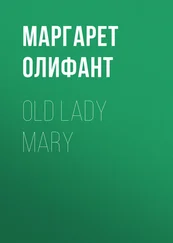Маргарет Олифант - Brownlows
Здесь есть возможность читать онлайн «Маргарет Олифант - Brownlows» — ознакомительный отрывок электронной книги совершенно бесплатно, а после прочтения отрывка купить полную версию. В некоторых случаях можно слушать аудио, скачать через торрент в формате fb2 и присутствует краткое содержание. Жанр: foreign_prose, literature_19, foreign_antique, на английском языке. Описание произведения, (предисловие) а так же отзывы посетителей доступны на портале библиотеки ЛибКат.
- Название:Brownlows
- Автор:
- Жанр:
- Год:неизвестен
- ISBN:нет данных
- Рейтинг книги:5 / 5. Голосов: 1
-
Избранное:Добавить в избранное
- Отзывы:
-
Ваша оценка:
- 100
- 1
- 2
- 3
- 4
- 5
Brownlows: краткое содержание, описание и аннотация
Предлагаем к чтению аннотацию, описание, краткое содержание или предисловие (зависит от того, что написал сам автор книги «Brownlows»). Если вы не нашли необходимую информацию о книге — напишите в комментариях, мы постараемся отыскать её.
Brownlows — читать онлайн ознакомительный отрывок
Ниже представлен текст книги, разбитый по страницам. Система сохранения места последней прочитанной страницы, позволяет с удобством читать онлайн бесплатно книгу «Brownlows», без необходимости каждый раз заново искать на чём Вы остановились. Поставьте закладку, и сможете в любой момент перейти на страницу, на которой закончили чтение.
Интервал:
Закладка:
“No,” said Sara, “I am a Masterton girl, and I ought not to go with you grand county folks—oh no, papa must take me; but thank you very much all the same.”
“You are an odd girl,” said Lady Motherwell. “You forget your papa is one of the very richest of the county folks, as you call us. I think Brownlows is the finest place within twenty miles, and you that have all the charge of it—”
“Don’t laugh at me, please—I don’t like being laughed at. It makes me feel like a cat,” said Sara; and she clasped her soft hands together, and sat back in her soft velvet chair out of the firelight, and sheathed her claws as it were; not feeling sure any moment that she might not be tempted to make a spring upon her flattering foe.
“Well, my dear, if you want to spit and scratch, let Charley be the victim, please,” said the old lady. “I think he would rather like it. And I am not laughing in the least, I assure you. I think a great deal of good housekeeping. We used to be brought up to see after every thing when I was young; and really, you know, when you have a large establishment, and feel that your husband looks to you for every thing—”
“We have not all husbands, thank heaven,” said Sara, spitefully; “and I am sure I don’t want a situation as a man’s housekeeper. It is all very well when it’s papa.”
“You will not always think so,” said Lady Motherwell, laughing; “that is a thing a girl always changes her mind about. Of course you will marry some day, as every body does.”
“I don’t see,” said Sara, very decidedly, “why it should be of course. If there was any body that papa had set his heart on, and wanted me to marry—or any good reason—of course I would do what ever was my duty. But I don’t think papa is a likely sort of man to stake me at cards, or get into any body’s power, or any thing of that sort.”
“Sara, you are the most frightful little cynic,” cried Lady Motherwell, laughing; “don’t you believe that girls sometimes fall in love?”
“Oh yes, all the silly ones,” said Sara, calmly, out of her corner. She was not saying any thing that she did not to a certain extent feel; but there is no doubt that she had a special intention at the moment in what she said.
Lady Motherwell had another laugh, for she was amused, and not nearly so much alarmed for the consequences as the young speaker intended she should be. “If all girls had such sentiments, what would become of the world?” she said. “The world would come to an end.”
“I wish it would,” said Sara. “Why shouldn’t it come to an end? It would be easy to make a nicer world. People are very aggravating in this one. I am sure I don’t see why we should make ourselves unhappy about its coming to an end. It would always be a change if it did. And some of the poor people might have better luck. Do you think it is such a very nice world?”
“My dear, don’t be profane,” said Lady Motherwell. “I never did think Mr. Hardcastle was very settled in his principles. I declare you frighten me, Sara, sitting and talking in that sceptical way, in the dark.”
“Oh, I can ring for lights,” said Sara; “but that isn’t sceptical. It’s sceptical to go on wishing to live forever, and to make the world last forever, as if we mightn’t have something better. At least so I think. And as for Mr. Hardcastle, I don’t know what he has to do with it—he never said a word on the subject to me.”
“Yes, my dear, but there is a general looseness,” said the old lady. “I know the sort of thing. He lets you think whatever you like, and never impresses any doctrines on you as he ought. We are not in Dewsbury parish, you know, and I feel I ought to speak. There are such differences in clergymen. Our vicar is very pointed, and makes you really feel as if you knew what you believed. And that is such a comfort, my dear. Though, to be sure, you are very young, and you don’t feel it now.”
“No, I don’t feel it at all,” said Sara; “but, Lady Motherwell, perhaps you would like to go to your room. I think I hear papa’s cart coming up the avenue—will you wait and see him before you go?”
Thus the conversation came to an end, though Lady Motherwell elected to wait, and was as gracious to Mr. Brownlow as if he had been twenty county people. Even if Sara did not have Brownlows, as everybody supposed, still she would be rich and bring money enough with her to do a vast deal of good at Motherwell, where the family for a long time had not been rich. Sir Charles’s father, old Sir Charles, had not done his duty by the property. Instead of marrying somebody with a fortune, which was clearly the object for which he had been brought into the world, he had married to please a fancy of his own in a very reprehensible way. His wife herself felt that he had failed to do his duty, though it was for her sake; and she was naturally all the more anxious that her son should fulfill this natural responsibility. Sir Charles was not handsome, nor was he bright, nor even so young as he might have been; but all this, if it made the sacrifice less, made the necessity more, and accordingly Lady Motherwell was extremely friendly to Mr. Brownlow. When she came down for dinner she took a sort of natural protecting place, as if she had been Sara’s aunt, or bland, flattering, uninterfering mother-in-law. She called the young mistress of the house to her side, and held her hand, and patted it and caressed it. She told Mr. Brownlow how pleased she was to see how the dear child had developed. “You will not be allowed to keep her long,” she said, with tender meaning; “I think if she were mine I would go and hide her up so that nobody might see her. But one has to make up one’s mind to part with them all the same.”
“Not sooner than one can help,” said Mr. Brownlow, looking not at Lady Motherwell, but at his child, who was the subject of discourse. He knew what the old lady meant as well as Sara did, and he had been in the way of smiling at it, wondering how any body could imagine he would give his child to a good-tempered idiot; but this night another kind of idea came into his mind. The man was stupid, but he was a gentleman of long-established lineage, and he could secure to Sara all the advantages of which she had so precarious a tenure here. He could give her even a kind of title, so far as that went, though Mr. Brownlow was not much moved by a baronet’s title; and if any thing should happen to endanger Brownlows, it would not matter much to Jack or himself. They could return to the house in Masterton, and make themselves as comfortable as life, without Sara, could be anywhere. This was the thought that was passing through Mr. Brownlow’s mind when he said, “Not sooner than one can help.” He was thinking for the first time that such a bestowal of his child might not be so impossible after all.
Beside her, in the seat she had taken when she escaped from Lady Motherwell, Sir Charles had already taken up his position. He was talking to her through his hard little black mustache—not that he said a great deal. He was a tall man, and she was seated in a low chair, with the usual billows of white on the carpet all round her, so that he could not even approach very near; and she had to look up at him and strain her ear when he spoke, if she wanted to hear—which was a trouble Sara did not choose to take. So she said, “What?” in her indifferent way, playing with her fan, and secretly doing all she could to extend the white billows round her; while he, poor man, bent forward at a right angle till he was extremely uncomfortable, and repeated his very trivial observations with a vain attempt to reach her ear.
“I think I am growing deaf,” said Sara; “perhaps it was that dreadful frost—I don’t think I have ever got quite thawed yet. When I do, all you have been saying will peal out of the trumpet like Baron Munchausen, you know. So you didn’t go to the stables? Wasn’t that rather naughty? I am sure it was to the stables your mamma sent you when you went away.”
Читать дальшеИнтервал:
Закладка:
Похожие книги на «Brownlows»
Представляем Вашему вниманию похожие книги на «Brownlows» списком для выбора. Мы отобрали схожую по названию и смыслу литературу в надежде предоставить читателям больше вариантов отыскать новые, интересные, ещё непрочитанные произведения.
Обсуждение, отзывы о книге «Brownlows» и просто собственные мнения читателей. Оставьте ваши комментарии, напишите, что Вы думаете о произведении, его смысле или главных героях. Укажите что конкретно понравилось, а что нет, и почему Вы так считаете.












